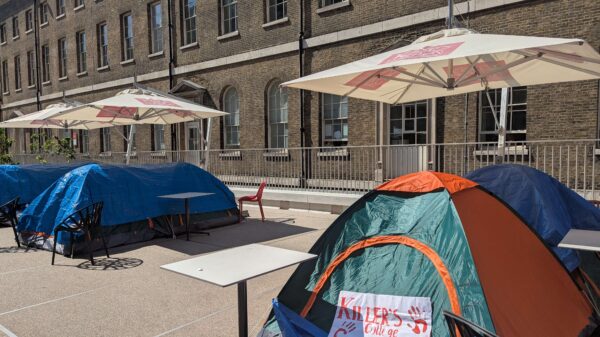Staff Writer Lydia Bruce provides advice to students suffering from Seasonal Affective Disorder (SAD) on how to manage symptoms.
We can all feel that the weather is changing. The familiar comfort of summer heat is quickly being traded for that biting winter frost that sends chills down the back of your neck. Trees are shedding their leaves in favour of a sparser, more ominous appearance, and we, too, find ourselves falling. Not from high branches in varying hues of golden brown but from contentment and the carefree joy of the warmer months.
What so many people are quick to label as ‘dramatic’ or feeling a little ‘down’ when winter descends is a very real issue, impacting the lives of many. SAD is estimated to affect around 5% of the population in the UK — that is more than three million people!
Women, and young people aged 16-30 are more likely to be diagnosed with SAD. Research suggests that young people are particularly vulnerable to SAD due to lifestyle factors that may exacerbate the impact of reduced daylight during winter, including study-related stress and lack of outdoor exposure.
Often SAD sufferers feel as though their winter depression is inevitable and something that they simply have to endure and dread at the sight of each falling leaf. However, research shows that there are actually a few simple ways of easing this cyclical plague-like occurrence. And it doesn’t have to cost you an arm and a leg, because we all know our student budgets won’t cover a £200 phototherapy lamp.
Here are three tips for handling seasonal depression this winter – for further advice please check the NHS website.
1.One easy suggestion is to expose the body to natural daylight first thing in the morning. Early exposure to daylight stimulates our serotonin production, increasing feelings of wakefulness and positivity.
Equally, Chambers argues that ensuring your room has a lot of natural light exposure can be extremely beneficial. Of course, floor-to-ceiling windows may not be feasible for students on tight budgets but opening your blinds every now and again might not hurt (the light won’t burn you I promise!).
2. Another easy quick fix, to the dismay of many, is exercise. Ideally, exercising outdoors where you are also exposed to light would be best, but any kind of exercise has been shown to decrease depressive feelings. Exercise, particularly cardiovascular exercise, releases endorphins, which are chemicals known to boost mood. Perhaps it’s time to finally go on that run you’ve been planning!
3. Although elusive for students, getting a good night’s sleep may do more for you than simply reducing some of that yawning we can all hear in our 9AM lectures. Sleep helps with emotional and hormonal regulation, so having an optimal evening routine and sleep environment is beneficial to reducing the impact of SAD. I know we all have deadlines and not enough hours in the day to complete them but you might be doing yourself more harm than good. Do yourself a favour and try closing that laptop down half an hour earlier.
Just as leaves fall in winter, so do our moods. SAD is a real issue and certainly not one that should be shrouded in shame or embarrassment. While these simple changes seem minor, they could make a big difference in your daily life. Making the effort to get a little bit more exercise and natural light can do no harm and, who knows, it might even give you back that illustrious summer spring in your step.
If you are ever worried about yourself or others, there is no shame in reaching out for help. Whether that’s support from friends, family members or healthcare professionals, please do not hesitate to do so.
The Counselling & Mental Health Support at KCL also offers free and confidential services to students.












